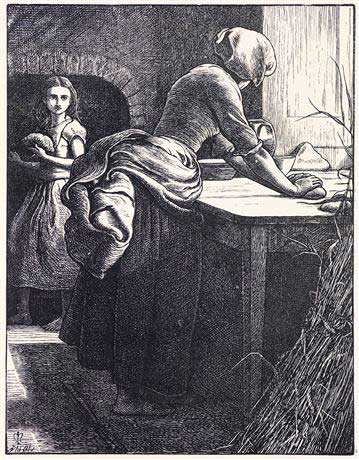Latter Day Saints
In the Greek pagan conception of the gods, there was no great
gulf between the immortals and ourselves. The gods were of human
form, in their own inherent nature, although they could shape-shift.
Divine DNA was not so different from human DNA, that hybrids, the
heroes, could not thrive and even reproduce their line. The principle as
stated by Pindar, is as follows: "One is the race of gods and men,
and of one mother both have breath" (Pindar, quoted in Clement of
Alexandria, Stromata, Book V, Chapter XIV). (Pindar's 'mother' is
probably Mother Earth, though Clement thinks otherwise.) The Greek gods
were indeed very much like men, so much so that men who lived on
earth, like Hercules, could rise into the sky and undergo promotion
to the next level, continuing their career as gods whose credentials
were beyond question, having undergone an apotheosis. The resemblance of
the Greek gods to men led an exasperated Xenophanes to retort,
"But had the oxen or the lions hands,
Or could with hands depict a work like men,
Were beasts to draw the semblance of the gods,
The horses would them like to horses sketch,
To oxen, oxen, and their bodies make
Of such a shape as to themselves belongs."
(Xenophanes of Colophon, quoted in Clement of Alexandria, Stromata, Book V, Chapter XIV).
It is enough to understand how species which are practically
identical can mate and produce young. Many practitioners in the
modern-day 'Jesus' publishing industry take it for granted that what
is described in the gospels is human-divine mating:
"Christianity said, according to Luke 1:26-38, that Jesus was
born of Mary and the Holy Spirit, of a human mother and a divine
Father. Paganism could not respond in rebuttal that such was quite
impossible. Pagans knew, after all, of the birth of Aeneas from a
divine mother and a human father. Closer to home, there was the
claim that Augustus himself was conceived from a divine father and a
human mother. Atia spent the night in Apollo's temple, the god
visited her in the guise of a snake, and 'in the tenth month after
that Augustus was born and was therefore regarded as the son of
Apollo,' according to Suetonius's The Lives of the Caesars: The
Deified Augustus 94:4 (Rolfe I.267). Against such a background, the
best paganism could offer to refute Luke was this, from Celsus's
late-second-century On the True Doctrine: 'Are we to think that the
high God would have fallen in love with a woman of no breeding?'
(Hoffmann 57-58). Not, It could not happen, but It could not
happen to a peasant woman. In a world where gods and goddesses,
spirits and immortals regularly interacted physically and sexually,
spiritually and intellectually with human beings, the conception of a
divine child and the vision of a dead person are neither totally
abnormal nor completely unique events." (John Dominic Crossan,
The Birth of Christianity, pp. xviii-xix).
You've got to giggle when you remember the guise under which the
seducer-god might appear: "Apollo, too, was there, a country boy At
times, or a shepherd, deluding Isse so, At times a hawk, at times a
tawny lion." (Ovid Metamorphoses, Book VI, lines 122-124). This
wouldn't be funny except that shepherds are part of the rural labor
force. Crossan is somewhat inconsistent in his mockery of divine
'peasants.' To the monotheist, his paradigm is inconceivable.
However, though believers react to this with horror, Crossan's
understanding of the virgin birth is not
without precedent. Some, but by no means all, of the Latter Day Saints believe that
Jesus is the result of a divine-human fling. This group are not
self-conscious detractors, but rather mean it in the nicest way.
They were driven to this position, I suspect, by the same
Kabbalistic imperatives which make it impossible for Rabbi Shmuley
Boteach to conceptualize any sort of virgin birth which is other than
a sexual coupling.
"The official doctrine of the Church is that Jesus is
the literal offspring of God. He's got 46 chromosomes: 23 came from
Mary, 23 came from God the eternal father." (BYU Professor Stephen
E. Robinson, in the video The Mormon Puzzle, quoted FAIR.org, Does
the Church of Jesus Christ of Latter Day Saints teach that God had
Sex with Mary?).
By the term 'literal offspring' observers fear is meant 'carnal
offspring.' This seems to have been the view of Brigham Young, Joseph
Smith's successor to the prophetic office:
"When the Virgin Mary conceived the child Jesus, the
Father had begotten him in his own likeness. He was not begotten by
the Holy Ghost. And who was the Father? He is the first of the human
family, and when he took a tabernacle, it was begotten by his Father
in heaven, after the same manner as the tabernacles of Cain, Abel,
and the rest of the sons and daughters of Adam and Eve; from the
fruits of the earth, the first earthly tabernacles were originated
by the Father, and so on in succession. . .Jesus, our elder brother,
was begotten in the flesh by the same character that was in the
garden of Eden, and who is our Father in Heaven" (Journal of
Discourses, Vol. 1, pages 50 and 51)." (quote of Brigham Young, p.
186, The Kingdom of the Cults, Dr. Walter Martin).
Where does this come from? In the final years of his life, Joseph Smith came under the
influence of the Kabbalah; he was just naive enough to believe that
this medieval revival of gnosticism was the authentic religion of
ancient Israel, which is how its promoters package it. In the
Kabbalah, God is a sexually active being. While the Kabbalists know
nothing of Jesus and Mary, one can't help but suspect hearing
language like this about God over a period of time will
'desensitize' listeners to the point where it seems quite natural to
think of God as the pagans thought of their Zeus and Hera. Notice
about that Rabbi Shmuley Boteach, an anti-Christian polemicist of
this tendency, finds it quite natural to interpret the virgin birth
in this non-virginal way.
|











